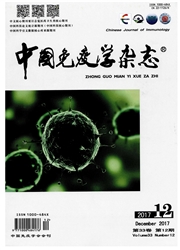

 中文摘要:
中文摘要:
目的:研究体外共培养情况下人胚胎干细胞H9对肝癌HepG2细胞的抑制作用。方法:建立人胚胎干细胞(H9)与肝癌HepG2细胞共培养体系,显微镜下观察胚胎干细胞对肿瘤细胞生物学行为的影响,流式细胞仪检测H9细胞对肿瘤细胞的凋亡与周期的影响,Transwell小室法检测H9细胞对HepG2细胞侵袭和迁移的影响,基因芯片分析共培养后HepG2细胞全基因组的表达谱变化。结果:结果发现共培养过程中,肝癌HepG2细胞生长受到抑制,随共培养时间延长,细胞数量逐渐减少,出现老化或凋亡迹象;流式细胞术检测发现HepG2细胞凋亡率显著增加,细胞周期被阻滞于G0/G1期;Transwell实验发现HepG2细胞侵袭、迁移力均降低;基因芯片结果发现HepG2细胞全基因组表达谱发生了显著变化,差异基因涉及多条信号通路。结论:人胚胎干细胞H9体外对人肝癌细胞HepG2有一定程度的抑制作用。
 英文摘要:
英文摘要:
Objective:To study the inhibitory effect of human embryonic stem cells on the HepG2 cells in vitro. Methods:The co-culture system of Human embryonic stem cells ( H9 ) and liver cancer HepG2 cells was established. The effect of H9 on the biological behavior of HepG2 cells was observed by microscope, the flow cytometry was used to detect the apoptosis of tumor cells and the cell cycle alteration. Transwell assay was used to detect the migration and invasion of tumor cells. Gene microarray technique was used to examine the change of gene expression profile of HepG2 cells. Results. In the process of co-culture, the growth of hepatoma cells was inhibited. With the extension of the culture time, cells decreased gradually, and occurred signs of aging or apoptosis. Flow cytometry test results showed that the apoptosis rate of hepatoma cells was significantly increased, and the cell cycle was blocked in the GO/GI phase. Transwell test results showed that the invasion and migration of HepG2 cells were decreased. The gene chip results showed that the whole genome expression profile of HepG2 cells had a significant change. Conclusion:The human embryonic stem cells had an inhibitory effect on HepG2 cells in vitro.
 同期刊论文项目
同期刊论文项目
 同项目期刊论文
同项目期刊论文
 Parallel induction of cell proliferation and inhibition of cell differentiation in hepatic progenito
Parallel induction of cell proliferation and inhibition of cell differentiation in hepatic progenito 期刊信息
期刊信息
